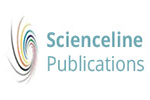(2022) Phytochemical and Antibacterial Effects of Leaf Extract from Mangrove Plant (Avicennia Marina) on Vibrio Parahaemolyticus in Shrimps. World's Veterinary Journal. pp. 260-265. ISSN 23224568
|
Text
WVJ 12(3), 260-265, September 25, 2022.pdf - Published Version Download (326kB) |
Abstract
Recently, there has been a tremendous increase in the studies addressing the application of bioactive compounds from the natural ecosystem, particularly for medical purposes. Hence, the present study investigated the antibacterial properties of the secondary metabolites possibly contained in the leaves of Avicennia marina (A. marina) for possible prevention of Vibrio parahaemolyticus (V. parahaemolyticus), a devastating bacterial pathogen in shrimp aquaculture. In the current study, secondary metabolites were extracted from the leaves of mangrove plant using ethanol extraction method. The ethanolic extracts were then subjected to phytochemical and antibacterial activity tests. The results from the phytochemical analysis demonstrated that the ethanolic extract from the mangrove plant contained varying amounts of flavonoids, tannins, saponins, polyphenols, alkaloids, steroids, and triterpenoids. However, the number of flavonoids and alkaloids seemed to be higher than the other metabolites. The antibacterial activity analysis through the agar diffusion method has shown that different concentrations (50 ppm, 100 ppm, 200 ppm, and 300 ppm) of the ethanolic extract of A. marina inhibited the V. parahaemolyticus. At 300 ppm, the plant extract exhibited 17.3 antibacterial effectiveness, compared to the antibacterial activity of chloramphenicol. The findings indicated that the secondary metabolites of A. marina have the potential that can be developed as an alternative treatment for aquatic animal diseases in the future. © Nikkhah A and Alimirzaei M (2022). Colibacillosis and Colisepeticemia in Newborn Calves: Towards Pragmatic Treatment and Prevention. World Vet. J., 12 (3): 230-236. DOI: https://dx.doi.org/10.54203/scil.2022.wvj29
| Item Type: | Article |
|---|---|
| Keywords: | Aquaculture; Bioactive compounds; Mangrove ecosystem; Treatment |
| Subjects: | Q Science > Q Science (General) S Agriculture > SF Animal culture |
| Divisions: | World's Veterinary Journal (WVJ) |
| Page Range: | pp. 260-265 |
| Journal or Publication Title: | World's Veterinary Journal |
| Journal Index: | Scopus |
| Volume: | 12 |
| Number: | 3 |
| Publisher: | Scienceline Publication |
| Identification Number: | https://doi.org/10.54203/scil.2022.wvj32 |
| ISSN: | 23224568 |
| Depositing User: | Dr. Alireza Sadeghi |
| URI: | http://eprints.science-line.com/id/eprint/722 |
Actions (login required)
 |
View Item |

